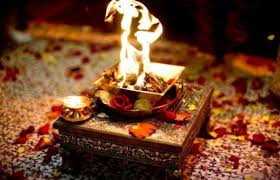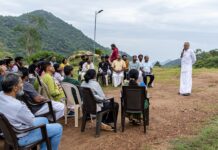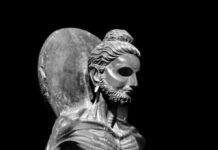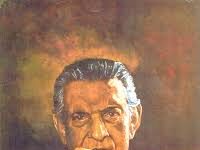
Hello Mr. Jeyamohan,
I saw your post on Vedhas. Are there any plans to start classes in the near future?
I am sixty-five years old, and I am reluctant to learn in the traditional way. Traditional methods are not effective for me. They won’t teach me either.
I am waiting for their response.
A little reader
Sundararajan
Dear Sundararajan,
Learning the Vedas has two ways.
One is learning the Vedas for the rituals, i.e., Yaga and Homa. Generally, religious rituals do not fall under Unified Wisdom. Therefore, we do not provide any such education. Be it Vedic chanting or Quran recitation.
Learning the Vedas for the Vedic rituals means learning to recite them by heart. The process involves reciting them exactly as they are, without any deviation in sound or word. Gestures accompany the recitation. It’s important to learn the rituals along with the verses. For each ritual, the Vedic mantra, its sound, and its accompanying actions are strictly defined. For at least four thousand years, these practices have remained unchanged.
Because they were so defined and so stubbornly maintained, the Vedas are the only ancient manuscripts that exist in their original form today. Other ancient manuscripts from the time of the Vedas (for example, Egyptian texts) are only archaeological relics. We can only speculate about their phonetics, and their true nature remains a mystery. The disappearance of the rituals associated with them leaves us largely guessing at their meaning.
Therefore, it is necessary for one to devote one’s entire life to studying the Vedas. The process of learning them must be systematic and continue for many years from youth. Devoting one’s life to this pursuit is appropriate. Furthermore, it is necessary that traditional institutions that teach this pursuit remain intact.
If someone begins studying it purely out of curiosity, the entire Vedic education system will eventually collapse. Hundreds of people with poor education will be formed. Such a mass formation would destroy the Vedic pronunciation methods and learning process that have endured for so long. Pseudo-Vedic scholars may even become more famous than the originals. Yoga, etc., has already been corrupted in this way.
It is true that in the past, the caste system maintained the Vedas. In fact, the caste system preserved them for centuries. We shouldn’t even refer to it as a caste system; we should refer to it as Vedic traditions. This distinction is due to the fact that not all Brahmins can study all the Vedas, and they are not permitted to do so. The rule was that only those belonging to a particular tradition could study the parts of the Vedas that that lineage teaches. It continues even now.
Now, people apart from Brahmins also study the Vedas. The Arya Samaj runs Vedic schools. Other organizations also run them. They also teach the Vedas, following a clearly defined system, as part of a long-term training program for youth. The learner is also a full-timer.
There is no need for a person who does not perform Vedic rituals to study the Vedas “just for interest sake.” Studying the Vedas with half-hearted attention in one’s spare time only increases errors. Erroneous education is useless and even harmful.
The second type of Vedic education is to study the Vedas intellectually and understand their meaning. This study does not require Veda chanting or ritual training. The Vedas are available in all languages, including English and Tamil. They contain original suktas, translations, and commentaries. You can study the Vedas with them. On the Internet, you can find audio recordings of the Vedas to listen to the chanting while studying them.
But you cannot simply take the Vedas and ‘read’ them. You cannot fully understand the meaning by reading the Vedas alone. Such reading will only lead to confusion. These books were written before the life we currently know was established. They belong to the period when humans transitioned from the Stone Age to tribal life. The philosophy, thoughts, and images that have existed since the Stone Age continue in them.
Therefore, we can understand the Vedas as a comprehensive philosophical education, encompassing their formation, structure, and continuity. The Upanishads are the continuation of the meaning or philosophy of the Vedas. They must also be learned. It is a continuous education that lasts for many years.
We are conducting such an education under the title of Introduction to Indian Philosophy.
Jeyamohan












